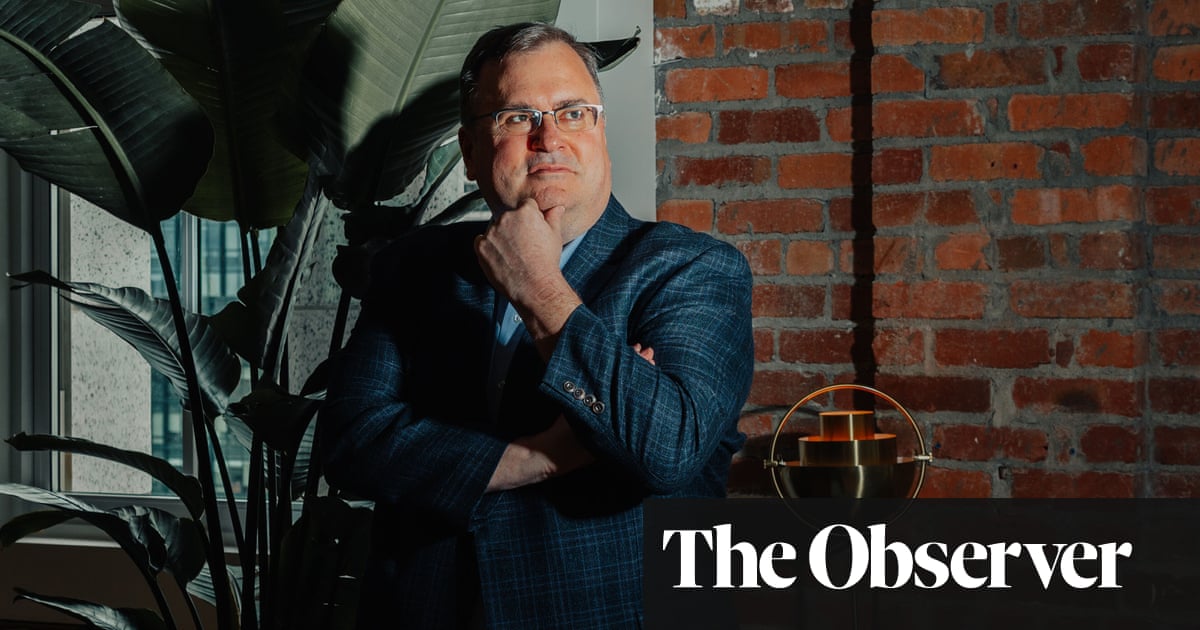Reid Hoffman: ‘Embrace AI Fully – It’s a Powerful Intelligence Enhancer’

Understanding Reid Hoffman and His Views on AI
Who is Reid Hoffman?
Reid Hoffman is a well-known entrepreneur and investor in Silicon Valley, recognized for co-founding LinkedIn, the popular professional networking platform now owned by Microsoft. As a prominent figure in the tech industry, Hoffman has also been vocal about his political views, particularly his opposition to Donald Trump. A strong supporter of the Democratic Party, he backed Kamala Harris in the presidential race. Recently, Hoffman has focused on exploring the implications of artificial intelligence (AI) through conversations about his new book titled Superagency.
The Concept of "Superagency"
In Superagency, Hoffman discusses how AI can potentially empower individuals and communities. He acknowledges the challenges AI poses but asserts that it can provide cognitive enhancements that boost human autonomy. His perspective emphasizes that while society may experience a tumultuous transition akin to the Industrial Revolution, AI could lead to widespread empowerment if we approach its development thoughtfully.
The Shift Towards AI
When discussing AI, Hoffman recognizes that some people are apprehensive about its risks. He describes those who tend to focus solely on the potential dangers as “gloomers.” However, he argues that being overly cautious can hinder progress. For western democracies, embracing AI early can unlock significant economic advantages and establish a future shaped by shared values and innovation.
AI as a Co-Pilot, Not a Replacement
One of Hoffman’s key beliefs is that AI tools, such as chatbots, work alongside us rather than against us. Whereas older AI technologies, like facial recognition or predictive policing, often operate on individuals, chatbots empower users by providing assistance based on explicit user choices. This collaborative aspect of AI can enhance productivity and free individuals from repetitive tasks, leading to greater opportunities for creativity.
The Need for Adaptation
Hoffman acknowledges that while some jobs may vanish as AI continues to evolve, many will adapt. For instance, information professionals will need to embrace AI tools to remain competitive. This necessity could be perceived as a loss of agency; however, Hoffman points out that engaging with AI might present new avenues for growth and innovation.
The Role of Regulations
When it comes to regulations, Hoffman believes that policies regarding AI should evolve alongside the technology. He views regulations as essential but stresses that they must be enacted wisely and with a focus on preventing harm. He advocates for ongoing dialogue among stakeholders, including developers, the public, and legislators, to steer AI developments positively.
Political Engagement and AI
Despite his reservations about current political trends, Hoffman’s focus remains on leveraging technology for societal good. He aims for contributions beyond politics, such as through his recent project, Manas AI, which is dedicated to advancing medical research. Although disheartened by political dynamics after Trump’s presidency, he emphasizes the importance of taking constructive actions that can better society.
The Future of AI and Society
Looking ahead, Hoffman predicts that technological advancements will bring about a transition characterized by collaboration between humans and AI. He hopes that, despite the challenges, people will utilize these tools for empowerment rather than succumb to fears of obsolescence. This optimism reflects his belief that, with patience and strategic direction, society can navigate the cognitive industrial revolution to achieve a healthier and more equitable future.
Final Thoughts on AI’s Potential
Hoffman believes that while we cannot avoid the complexities of AI integration in our daily lives, we can embrace it as a tool for enhancing our capabilities. By actively engaging with AI and learning to harness its full potential, society can navigate difficulties and foster growth across various domains. Through a careful balance of innovation, regulation, and collaboration, we can shape a future where both technology and humanity thrive together.






